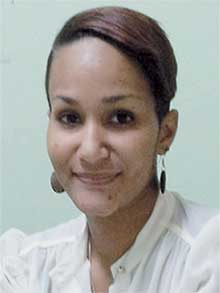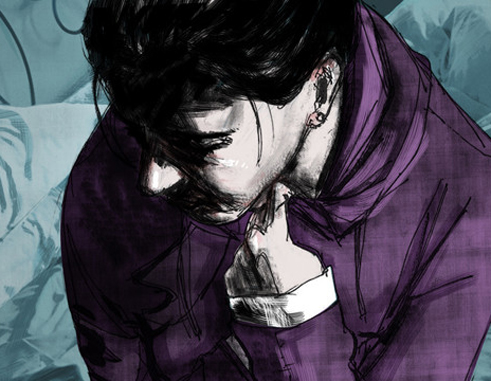
The Courage to Heal: A Guide for Women Survivors of Child Sexual Abuse by Ellen Bass & Laura Davis has served as the foundation for many of our articles this year and will continue to do so as we go through 2019. One of the foundational goals of PROSAF is to validate the experiences, behaviours, reactions, feelings, thoughts, decisions and goals of survivors but also to couple that with education that would allow survivors and the wider community to understand what a survivor of sexual violence goes through during and after their traumatic experience.
This week’s article is going to explore the ways in which we try to take back control after living through a traumatic experience. We can all relate to wanting to be in control of what happens in our lives, it doesn’t take a traumatic experience to make you want to be in control of what happens in your life. But take that everyday feeling of wanting to be the architect of your life and consider what it would feel like to have part of your plan erased. How would that make you feel? What would that do to the rest of the drawing if someone erased your plan without your consent and then drew out a new plan again without your consent?
Having lived through a traumatic experience, especially one where your choices are taken away from you, this might make you want to take control over as many aspects of your life as you can. That is completely understandable. In this week’s article, we will focus on the ways in which we try to regain and maintain control after a traumatic experience. This week, we will look at hyper-vigilance, creating chaos and trying to achieve a sense of safety at any cost. We understand that there are specific parts of this article and all articles that will resonate with you more than others. There are terms that will be mentioned here that will leave you with an “Ah moment”, and there will be parts that will validate and explain how the changes in your behaviour have come to be. The last seven articles explored ways in which many of us as survivors of sexual violence, but also survivors of various things try to cope through the use of control. Today we look at hyper-vigilance.
Let’s begin by looking at hyper-vigilance and what that means. 1) Hyper-vigilance revolves around the need to always be aware of where you are in a room, where the escape route is. People who are hyper-vigilant feel the need to be facing the door in order to be able to assess and quickly get out of impending danger. There is also hyper-vigilance with regards to always needing to know what those around are up to. Knowledge is power, if I know what is going on in the lives of those around me I am better able to anticipate their needs, their moods and what they may need from me, therefore better prepared for any situation that may arise. This type of control allows you to be in charge of your environment and the people in it. 2) When we speak of control though creating chaos, we refer to survivors either creating an environment where they are the center of attention in an effort to feel in their element. As survivors of sexual violence you have in many ways learned to master the chaos that came along with being sexually assaulted. You learnt how to handle what stemmed from the chaos. Control through chaos may make you feel more in control as you are the one in charge, you are either creating the environment of chaos where everyone needs to focus on you, or coming to the rescue of a chaotic situation because it leaves you feeling competent. Lastly, we will discuss what is meant by 3) Safety at any price – by this we mean that you air on the side of caution more often than not, you don’t take risks, you sacrifice adventure, opportunity and potential in an effort to have the predictable safe choice. You prefer routine and the safety of security rather than risk life of the unknown. There is control in that regard as you believe there will be few surprises, nothing to jump out and catch you off guard. Anyone having suffered a traumatic experience where their choices were taken from them can understand using any of the three above as a coping mechanism. What you may desperately want is to feel in control of your life again and being hyper-vigilant, creating a chaotic environment or thriving in a chaotic environment and deciding that the safe predictable path is better than the unknown may feel like the right path forward. And for a while it may be. But remember these are coping mechanisms, which means that at some point the current coping mechanisms will fail to serve their purpose. There is however, no shame in using any of the above as a way to help you cope and get through the day. Coping has been your safety blanket; it has helped you find ways to protect yourself, to continue to make it through the day. Being in control may have you feeling empowered, feeling like you finally have a say in what happens in your life again. I want you to know that how you choose to cope depends on where you are and what you need.
If you are using any of the coping mechanisms we have discussed in this article, know that it may be your way of trying to regain control. There is nothing wrong with you. Understanding how you have been affected will help you feel a bit more in control as you begin to or continue to heal. We are not here to judge any of you for how you chose to cope. We are here to hopefully educate and validate what you are feeling, what you are going through and how you are dealing with it on a daily basis. Each of us copes in the best way we know how. Each of us are doing what we can to get through the day, to get out of bed. Coping is what you did to survive trauma and it is what you do now to make it through each day. We, at PROSAF, have acknowledged that violence against women is a problem in St. Lucia and the wider Caribbean. We are here to begin the metamorphosis that is desperately needed. We are always here to listen and if you are not ready to come forward but need a listening ear, feel free to contact us. Remember that sexual assault is something that happens to people, it does not define them. It is something that was done to them. Always remember that you are not alone, that you have nothing to be ashamed of.





![Simón Bolívar - Liberator of the Americas [Photo credit: Venezuelan Embassy]](https://thevoiceslu.com/wp-content/uploads/2025/12/Simon-Bolivar-feat-2-380x250.jpg)



